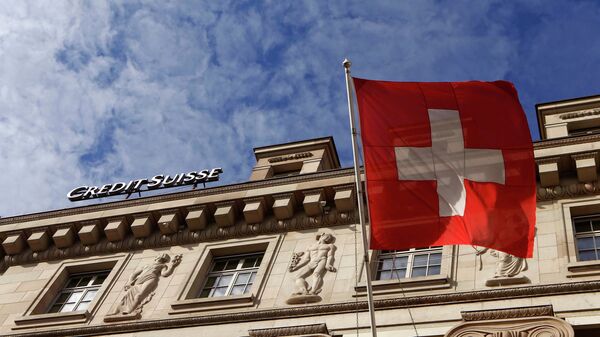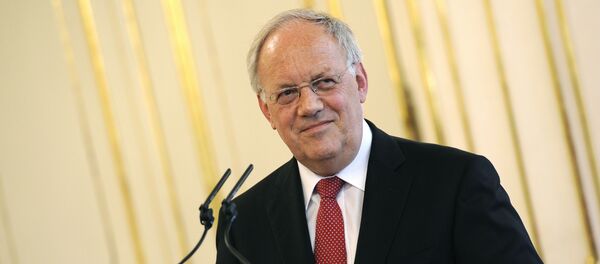The Swiss government is approaching a deadline to introduce immigration controls following a 2014 referendum on the matter, with lawmakers scrambling to find a solution.
The prospect of immigration caps raises huge complications for Switzerland, which will have to outline how it intends on doing so by December, subsequently putting at risk its complex relationship with the EU — which exists through a series of bilateral agreements.
#Switzerland is the UK’s sixth largest #export market and the second largest non-EU market pic.twitter.com/ge4iSKDFqi
— Swiss Embassy UK (@SwissEmbassyUK) July 27, 2016
Following the UK's June 23 decision to vote in favor of leaving the bloc, EU leaders have made it clear that in order to have access to the European single market, non-EU countries must abide by the four freedoms — that is the free movement of goods, capital, services and people.
The developments mean both the UK and Switzerland are facing similarly tricky situations in their quest to control immigration while also maintaining access to the EU single market.
And with talks with the British looming, it seems the EU is looking to set a precedent with Switzerland, which could risk losing out on single market access.
Meeting my friend @_BR_JSA: Difficult negotiations with #Switzerland will continue. Next meeting on 19/09 in Zürich. pic.twitter.com/cQ8ai2c1Kb
— Jean-Claude Juncker (@JunckerEU) July 16, 2016
During talks with Swiss President Johann Schneider-Ammann in July, European Commission President Jean-Claude Juncker tweeted that the ongoing negotiations were "difficult", while the Swiss government also acknowledged the impact the Brexit would hamper talks.
"The two sides acknowledged that the outcome of the UK referendum had complicated efforts to find a solution within the timeframe set out in the constitution," a Swiss government statement said.
Plenty to Lose for Switzerland
With the EU seemingly determined to set an example and deter other EU member states from wanting to leave the bloc, it appears Switzerland might stand to lose the most in the new circumstances.
While Switzerland is the EU's fourth-biggest trading partner, the EU is Switzerland's biggest trade ally, with any significant change to the existing agreement set to impact both parties.
The nature of Switzerland relationship with the EU — which consists of a series of bilateral agreements rather than one uniform deal — is also set to further complicate matters, as many or all of the bilateral agreements may need to be renegotiated.
Just how much do EEA members pay into the EU? #Brexit analysis from @ZsoltDarvas https://t.co/iTbLQ623i5 pic.twitter.com/Xnx1tzCj70
— Bruegel (@Bruegel_org) July 28, 2016
There are fears that complications around the delicate issue of immigration could see Switzerland's key banking industry denied "passport rights," which would prevent access to the EU single market and devastate the sector.
There is such concern that some Swiss citizens opposed to immigration caps have called for another referendum to be held.
At present, both the EU and the Swiss are looking at ways to maintain the status quo as much as possible, while also honoring the requirements of the referendum.
The referendum, held in February 2014, asked Swiss residents if they wanted to "stop mass immigration."
While much of Switzerland's political establishment rejected such calls, the motion was carried by a slender majority of 50.3 percent, following support form the country's right-wing Swiss People's Party.
Talks will continue in September, with leaders hopeful of coming to an agreement by December.




